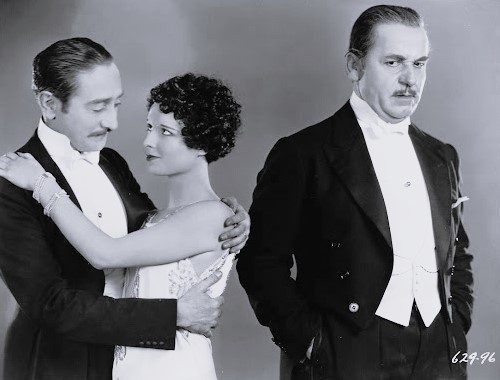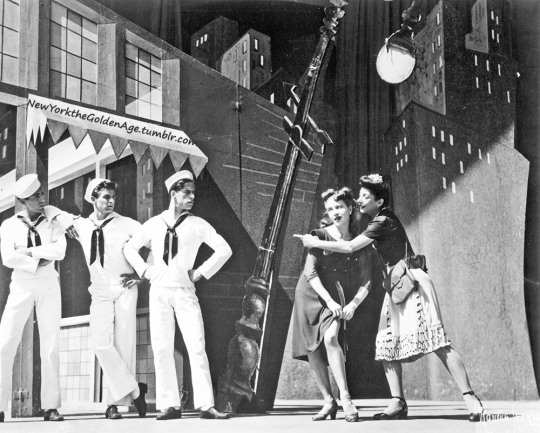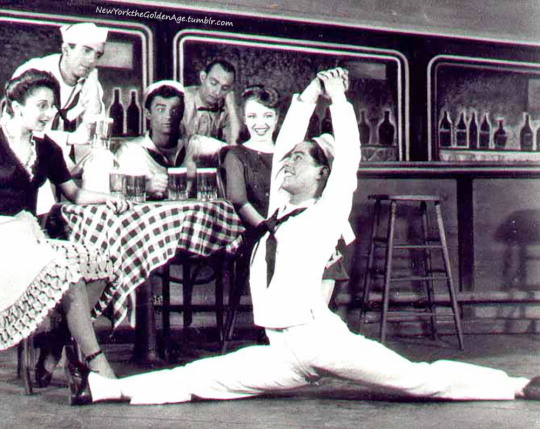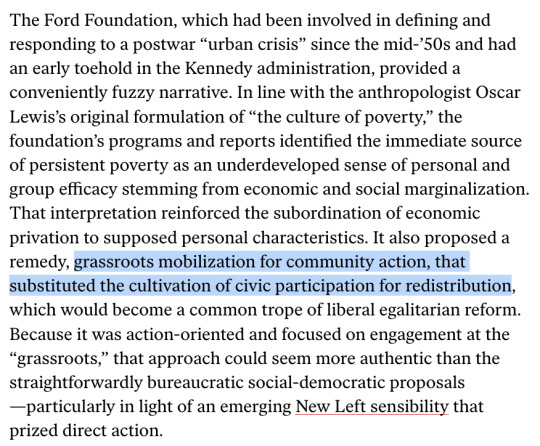#Adolph Reed
Explore tagged Tumblr posts
Text
As I indicate above, Rustin invents the gay affair to underscore how difficult it was to be a black gay man in 1963 but also by definition how much better it is to be one now. It unquestionably is, in many ways, for many gay people. Yet in making Rustin’s sexual orientation the film’s centerpiece, to the extent of never once discussing the specific objectives of the 1963 March and having Tom Kahn’s character trivialize disagreements about direction in the movement (“SNCC, CORE, the NAACP kids, we’re all fighting over agendas and slogans and songs”), “reclaiming” Rustin is also celebrating triumph of a thin neoliberal conception of social justice that is fundamentally at odds with the social-democratic vision Rustin actually pursued.
9 notes
·
View notes
Text
"The promise of upward mobility has been a poor substitute for a robust system of social protection, and it has rationalized the existence of degraded employment by characterizing it as part of the natural order of things, in principle temporary and justified based on desert or merit. Most of all, the ideology was tied to a presumption of continuing economic growth that promised indefinitely expanding opportunity structures. The past half century of wage stagnation and even declining living standards for an increasing share of the population has undercut the ideology’s power as a popular faith."
-Afropessimism, or Black Studies as a Class Project by Adolph Reed, Jr.
2 notes
·
View notes
Text
“Liberals don't believe in politics anymore, only bearing witness to suffering.”
—Adolph Reed, 2014
3 notes
·
View notes
Text
Adolph Reed is Wrong
Adolph Reed, when he talks about supporting Joe Biden, is not only wrong but even worse, he's fairly anti-Democratic (though to be fair everyone that asks that you support Joe Biden is likely in the same boat) because an underlying principal of American democracy is the idea of give and take.
Which is to say, you vote for a candidate, and said candidate enacts policies that benefit the bulk of their supporters.
And this is where Reed's entire premise breaks down, namely he wants you to vote for Joe Biden because 'Trump bad' but there's a problem, namely using Adolph Reed's logic Joe Biden and the Democrats don't have to do anything in particular to EARN voters' support – you know, like backing policies that their supporters want – because people will support them out of fear.
And what's worse about Reed's proposal is that all Democrats need to do is only what the American people want on the margins, if that, then do what they typically do, which is to back the interests of the rich and powerful.
youtube
0 notes
Text


Fantastic Four (2022) #22 by Alex Ross / Dante And Virgil In Hell (1850) by William-Adolphe Bouguereau
#marvel comics#fantastic four#mister fantastic#mr fantastic#reed richards#blood hunt#alex ross#dante and virgil in hell#william adolphe bouguereau#my edit#comicedit#parallels#paintings
221 notes
·
View notes
Text

Adolphe Menjou-Louise Brooks-Noah Beery "Evening clothes" 1927, de Luther Reed.
5 notes
·
View notes
Text
0 notes
Text
L&BH Radio, Wed. Aug 16, on WPVMfm.org
Tony Robles' interview of Dr. Dwight Mullen about his role in reparations negotiations, and several books about the case for reparations, is part of a montage of spoken word curated by Martha Cinader.
Talking Reparations Listen & Be Heard airs on Wednesday afternoons from 3-5pm, EST, hosted live by Martha Cinader from WPVMfm 103.7fm in Asheville, NC and at WPVMfm.org to the world. Tony Robles’ interview of Dr. Dwight Mullen about his role in reparations negotiations, and several books about the case for reparations, is part of a montage of spoken word curated by Martha Cinader. Dr. Dwight…

View On WordPress
#A. Kirsten Mullen#Adolph L. Reed jr.#Asheville reparations#Dr. Dwight D. Mullen#Lucas Hubbard#reparations#spoken word#William Darity
0 notes
Text
Ultraleftism... is a refusal to take into account the ways that existing political realities limit possibilities for action. Ultraleft politics confuses means and ends, muddles the distinctions among goals, strategy, and tactics. Historically, for instance, ultraleftists have dogmatically opposed participating in coalitions with liberals or mainstream politicians.
This tendency severs the idea of commitment to principle from the need to make realistic assessments of the options that exist in the fluid here-and-now; to analyze tough-mindedly our strengths and weaknesses; to think seriously and instrumentally about how to build a constituency within a social base (to “unite the many to defeat the few,” for those nostalgic for old slogans).
Ultraleftism is a maximalist politics. It’s much more about taking positions that express the intensity of one’s commitments than about organizing or building anything. Rather than crafting language to build broad support for a substantively radical program, for instance, ultraleftists prefer potted rhetoric that asserts their bona fides, without concern for communicating outside the ranks of believers.
Class Notes -- Adolph Reed
#mab reads#this is really well articulated and certainly.something I see a lot#and something I've been guilty of from time to time
87 notes
·
View notes
Text

Above: Jerome Robbins, John Kriza, Harold Lang, Janet Reed, and Muriel Bentley in the original production of Robbins's Fancy Free. Photo: Maurice Seymour via Newsweek
On April 18, 1944, Jerome Robbins's first ballet, Fancy Free, premiered at the Metropolitan Opera House.
From the moment the action begins, with the sound of a juke box wailing behind the curtain, the ballet is strictly young wartime America, 1944. The curtain rises on a street corner with a lamp post, a side street bar, and New York skyscrapers pricked out with the crazy pattern of lights, making a dizzying backdrop. Three sailors explode onto the stage. They are on 24-hour shore leave in the city and on the prowl for girls. The tale of how they meet first one, then a second girl, and how they fight over them, lose them, and in the end take off after still a third, is the story of the ballet.
That synopsis was written by Leonard Bernstein, the composer of the ballet's score. He was 25 at the time (the same age as Robbins) and an assistant conductor of the New York Philharmonic. Just a few months earlier, he had made a splash as a last-minute substitution for Bruno Walter at a Philharmonic concert, jump-starting his career.

Above: photo from Haglund's Heel
The ballet featured John Kriza, Harold Lang and Jerome Robbins himself as the three sailors, Muriel Bentley, Janet Reed, and Shirley Ecki as the girls, and Rex Cooper as the seen-it-all bartender. The great critic Edwin Denby observed that the ballet:
was so big a hit that the young participants all looked a little dazed as they took their bows. But besides being a smash hit, Fancy Free is a very remarkable comedy piece. ... Its pantomime and its dances are witty, exuberant, and at every moment they feel natural.

Above: Jerome Robbins, Michael Kidd, John Kriza, and Shirley Eckl performing the ballet in London Photo: Baron via MPR News
Over the years, Fancy Free has entered the repertory of countless ballet companies in the U.S. and abroad. It was so popular that Robbins and Bernstein were persuaded to turn it into a Broadway musical: On the Town. It debuted on December 28 of the same year, which seems astonishing considering how long it takes to create contemporary musicals. Bernstein wrote the music, Betty Comden and Adolph Green the book and lyrics, and Robbins choreographed it—the first in a long line of musical theater triumphs for him. Confidence in the show was so high that MGM bought the film rights before it opened, a common practice now, but not then. It was the first film set in the city to be actually filmed there (in part) instead of on a Hollywood soundstage.
#vintage New York#1940s#Fancy Free#Jerome Robbins#ballet#Leonard Bernstein#American ballet#John Kriza#Harold Lang#Muriel Bentley#Janet Reed#Shirley Eckl
43 notes
·
View notes
Text
In a classic 1952 essay on “The Historical Invariance of Marxism,” Amadeo Bordiga identified three contemporary forms of opposition to Marxist theory. First of all there were the bourgeois apologists, who denied the validity of Marx’s critique of political economy. Next there were the Stalinists, who verified Marx’s insights in word but falsified them in deed. Last but not least came the renovators, who tried to modernize Marx’s concepts — i.e., the “self-declared advocates of revolutionary doctrine and method who nonetheless attribute its current abandonment by most of the working class to defects and initial gaps in the theory which must be rectified and brought up to date. Deniers — falsifiers — modernizers. We fight against all three, but we consider the third group [of adversaries] to be the worst of the lot.”
Bordiga’s hardheaded “invariance” was of course largely strategic, meant to sustain a set of principles against unwarranted revisions, additions, subtractions, etc. Marxism addresses itself primarily to history, to changing conditions which must be dealt with on their own terms. Principles, while not totally sacrosanct, should not be compromised at a whim, in order to accommodate regression or to rationalize defeat (Stalin’s motto of “socialism in one country,” for example, was only adopted after it became clear that proletarian revolution had failed in the West). Recently, however, it has again been suggested that Marxism must be supplemented, augmented, or otherwise updated so as to be more inclusive or appeal more to a broader range of people. LIES: A Journal of Materialist Feminism at least poses this as an open-ended question: “How do we assess the many different theories that attempt to describe the structure of race, gender, and class?” Questions like this seem to suppose definite answers, though, which invariably prove weaker than the original line of inquiry.
Yesterday, in a discussion about how to conceptualize race under capitalism, one ostensible left communist remarked that “there are any number of left communists who are ready to explain to you where ‘intersectionalism’ fails, but how many of them can account for why it exists?” Another discussant then asserted that “a left communist fusion with identitarian points of view is necessary. We need to do more than dismiss a whole perspective just because of differences in language and analysis.” Terms such as “identitarian” and “identitarianism” are of fairly recent vintage, stemming from several sources, hence polysemic. Black socialist critics like Adolph Reed use these terms to denote “essentialized ascriptive identities, commonly referred to as identity politics.” Here the identities in question are multiple, referring to discrete groups whose distinct characteristics, fluid social relations, are fast-frozen and held aloft as if solids. Or else they are snatched from the air, from the misty realm of ideology — as the reified distillate of cultural stereotypes. For the critical theorist Theodor W. Adorno, “identitarian” signified just the opposite, the idea of a harmonious social totality in which every antagonism had been surreptitiously removed.
Anyway, I objected that a fairly widespread identitarian movement already exists across Europe and the United States. It is one with which socialists must not fuse, however, under any circumstances. Since 2002, the extreme right-wing nationalist Bloc Identitaire has been active in France. Now it has managed to set up a branch in England and establish a foothold in America. Generation Identity, as it calls itself, is the logical culmination of the “identity politics” foolishly embraced by many parts of the Left these last few years. “Our only inheritance is our blood, soil, and heritage,” reads their headline, with clearly fascist overtones. “We are heirs of our destiny.” Just a couple months ago, the National Policy Institute (NPI) held an entire conference devoted to identity politics in Washington, DC. Claus Brinker, who covered the event for the website Counter-Currents, reported that it aimed to ascertain “the future of white racial identity politics.” In the comments thread of a post several years ago by Red Maistre, “On Identitarianism: In Defense of a Strawman,” Maoist veteran Carl Davidson argued that the real enemy was tacit “white male identity politics.”
Tacit or not, it is clear that formations like Generation Identity and Bloc Identitaire represent something new. When I brought them up, the aforementioned discussant did not seem to appreciate it. “You must have been confused by my terminology,” was the reply. “I did not mean that particular brand…” My response was to ask what the approved brands of identitarianism might be, expressing my concern that drawing distinctions of this sort is reminiscent of the attempt to distinguish “good” from “bad” nationalism. Special pleading routinely accompanies support for the “nationalism of the oppressed,” and relies on a similar logic. One wonders if a similar rationale might not be used to justify cheering on various national liberation projects, like every other Maoist and Trotskyist sect. Even anarchists can get in on some of this action now, with the PKK’s Bookchinite municipalism. Why not just ditch the whole left communist schtick if what you really want is to wave a Palestinian, Kurdish, or Naxalite flag?
#identity politics#idpol#marxism#communism#communist theory#amadeo bordiga#gilles dauve#gilles deleuze#jacques derrida#national liberation
4 notes
·
View notes
Text
The Invention of the Saxophone
Billy Collins
It was Adolphe Sax, remember, not Saxo Grammaticus, who gets the ovation. And by the time he had brought all the components together–the serpentine shape, the single reed, the fit of the fingers, the upward tilt of the golden bell– it was already 1842, and one gets the feeling that it was also very late at night. There is something nocturnal about the sound, something literally horny, as some may have noticed on that historic date when the first odd notes wobbled out of his studio into the small, darkened town, summoning the insomniacs (who were up waiting for the invention of jazz) to their windows, but leaving the sleepers undisturbed, evening deepening and warming the waters of their dreams. For this is not the valved instrument of waking, more the smoky voice of longing and loss, the porpoise cry of the subconscious. No one would ever think of blowing reveille on a tenor without irony. The men would only lie in their metal bunks, fingers twined behind their heads, afloat on pools of memory and desire. And when the time has come to rouse the dead, you will not see Gabriel clipping an alto around his numinous neck. An angel playing the world’s last song on a glistening saxophone might be enough to lift them back into the light of earth, but really no further. Once resurrected, they would only lie down in the long cemetery grass or lean alone against a lugubrious yew and let the music do the ascending– curling snakes charmed from their baskets– while they wait for the bright trumpet solo, that will blow them all to kingdom come.
4 notes
·
View notes
Text


3 notes
·
View notes




